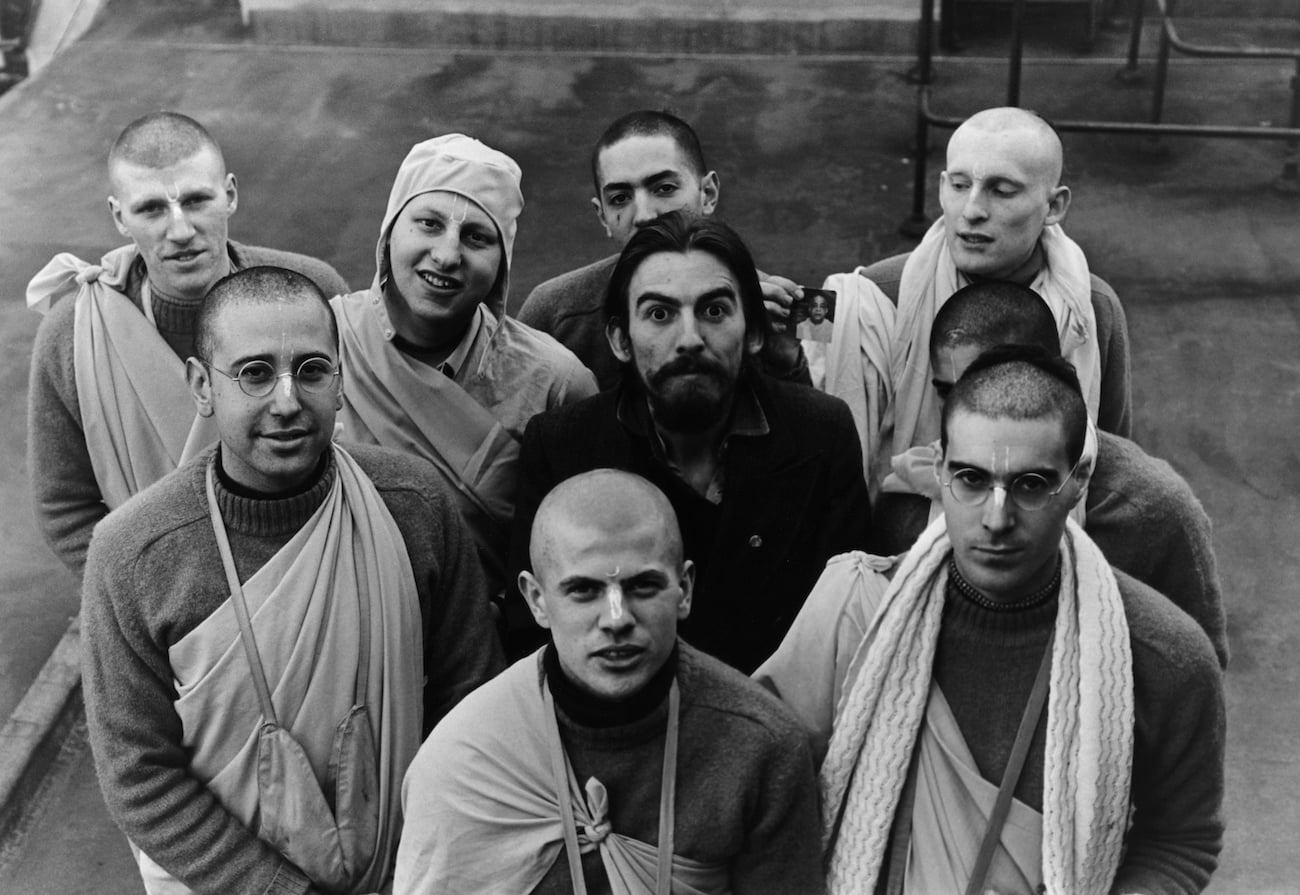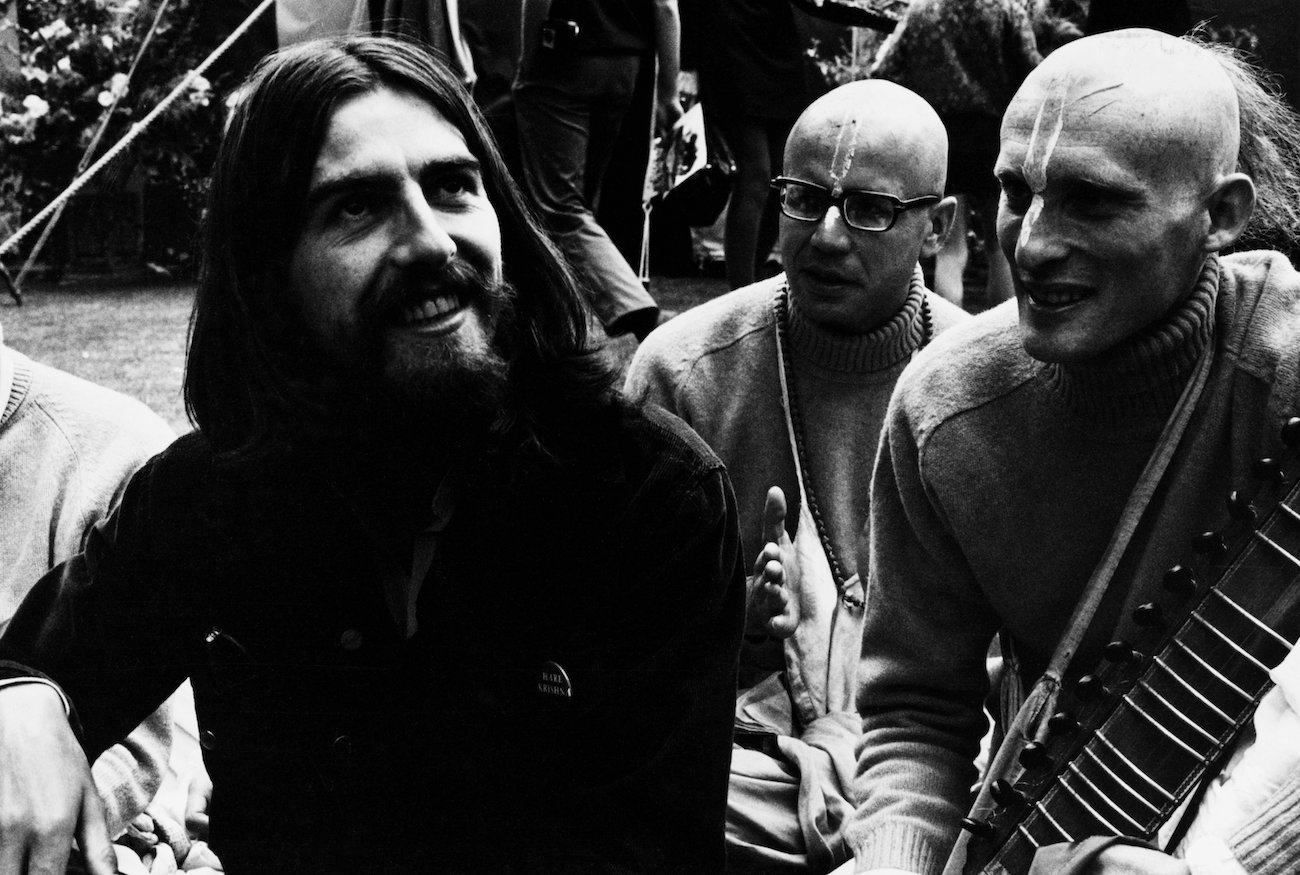
George Harrison Said Releasing ‘My Sweet Lord’ as a Single Was Like Sticking His Neck ‘out on the Chopping Block’
George Harrison had enough to deal with during the making of All Things Must Pass, and deciding whether or not to make “My Sweet Lord” into a single was just another dilemma.
George had just left one of the most famous bands in history, The Beatles, and although he often felt constipated in the band, he didn’t quite know what he wanted to do now that he was set free. He knew he had a stockpile of songs but didn’t know whether he wanted to release them.
There were other issues in his life as well. His mother died, his marriage was disintegrating, and he’d recently purchased a run-down mansion. Regardless of what was going on around him, though, George embarked on what was one of his most creative periods. It was a very dualistic time for him, but he had the album all mapped out before he even set foot in the recording studio.
However, there was the issue of “My Sweet Lord.”

Edwin Hawkins’ ‘Oh Happy Day’ inspired George Harrison to write ‘My Sweet Lord’
In his 1980 memoir, I Me Mine, George wrote that the Edwin Hawkins Singers’ funk and gospel version of the 18th-century hymn “Oh Happy Day” inspired him to write “My Sweet Lord.”
George wrote the song while touring England with Delaney & Bonnie in 1969.
According to Beatles Bible, George said, “I remember Eric [Clapton] and Delaney & Bonnie were doing interviews with somebody in either Copenhagen or Gothenburg, somewhere in Sweden and I was so thrilled with ‘Oh Happy Day’ by The Edwin Hawkins Singers.
“It really just knocked me out, the idea of that song and I just felt a great feeling of the Lord. So I thought, ‘I’ll write another ‘Oh Happy Day’,’ which became ‘My Sweet Lord.'”
George said releasing ‘My Sweet Lord’ as a single felt like putting his neck on ‘the chopping block’
Initially, writing “My Sweet Lord” concerned George. The song’s religious subject matter could offend people. In the lyrics, George repeats part of a Hindu mantra, “Hare Krishna… Krishna, Krishna,” and interposes it with the Christian “Hallelujah.”
In I Me Mine, George wrote, “I thought a lot about whether to do ‘My Sweet Lord’ or not because I would be committing myself publicly and I anticipated that a lot of people might get weird about it. Many people fear the words ‘Lord’ and ‘God’–makes them angry for some strange reason.”
However, Phil Spector, the producer, said it’d be a hit. He encouraged George to release it as a single. Everyone else advised against it.
George was already teetering on the decision of whether to release the record at all. Spector said George took six months to make All Things Must Pass. He almost liked how long it took.
In Martin Scorsese’s documentary George Harrison: Living in the Material World, Spector said, “I picked ‘My Sweet Lord’ of all the songs; I told him that’s the hit. Everybody fought me on that because they said it’s got religious overtones in it. I just said it didn’t matter. It’s the most commercial song. George was even nervous about it.”
George thought people would hate him for “My Sweet Lord” because they fear the unknown. “It’s some sort of instinct in people,” George said in Scorsese’s documentary. However, his own instinct to represent something he loved won the battle of whether or not to release “My Sweet Lord” as a single.
In his memoir, George continued, “The point was, I was sticking my neck out on the chopping block because now I would have to live up to something, but at the same time I thought, ‘Nobody’s saying it; I wish somebody else was doing it.’
“You know, everybody is going ‘Be-bob baby’–OK, it may be good to dance to, but I was naive and thought we should express our feelings to each other–not suppress them and keep holding them back. Well, it was what I felt, and why should I be untrue to myself? I came to believe in the importance that if you feel something strong enough then you should say it.”
The song became the first No. 1 hit by an ex-Beatle
Spector was right. “My Sweet Lord” became a No. 1 hit, the first by any ex-Beatle. The song reached No. 1 in December of 1970. It stayed on the Billboard Hot 100 for five weeks.
However, in 1971, Bright Tunes Music Corporation filed suit against George for copyright infringement. The late Ronnie Mack’s song “He’s So Fine,” recorded by The Chiffons in 1963, sounded just like “My Sweet Lord.”
George berated himself for not realizing the similarities between his song and “He’s So Fine.” Although, he didn’t regret the record. He wrote in his memoir, “I wanted to show that ‘Halleluja’ and ‘Hare Krishna’ are quite the same thing.”
George continued, “I had been chanting ‘Hare Krishna’ for a long time and this song was a simple idea of how to do a Western pop equivalent to a ‘mantra,’ which repeats over and over again, holy names. I don’t feel guilty or bad about it… I know the motive behind writing the song in the first place and its effect far exceeded the legal hassle.”
The spiritual message of “My Sweet Lord” lives on in modern stories. George’s son, Dhani, just released the song’s official music video. As the song plays, a special task force searches for something they don’t quite know. Although their search includes high-tech gadgets, nothing can find God if you can’t see He’s right in front of you. God is everywhere. However, it takes a certain skill to see God. That’s what George is craving in “My Sweet Lord.” He wants to see God.


